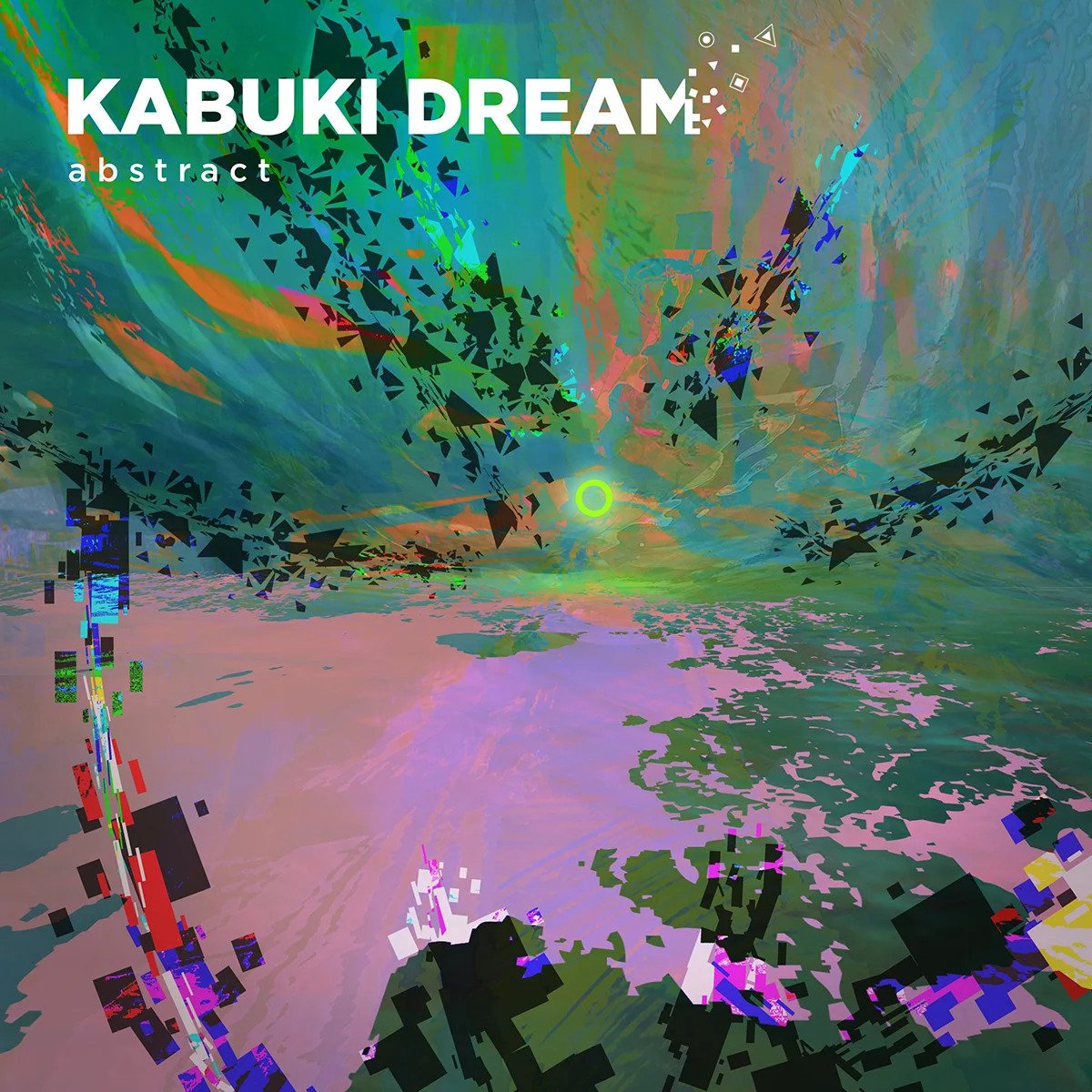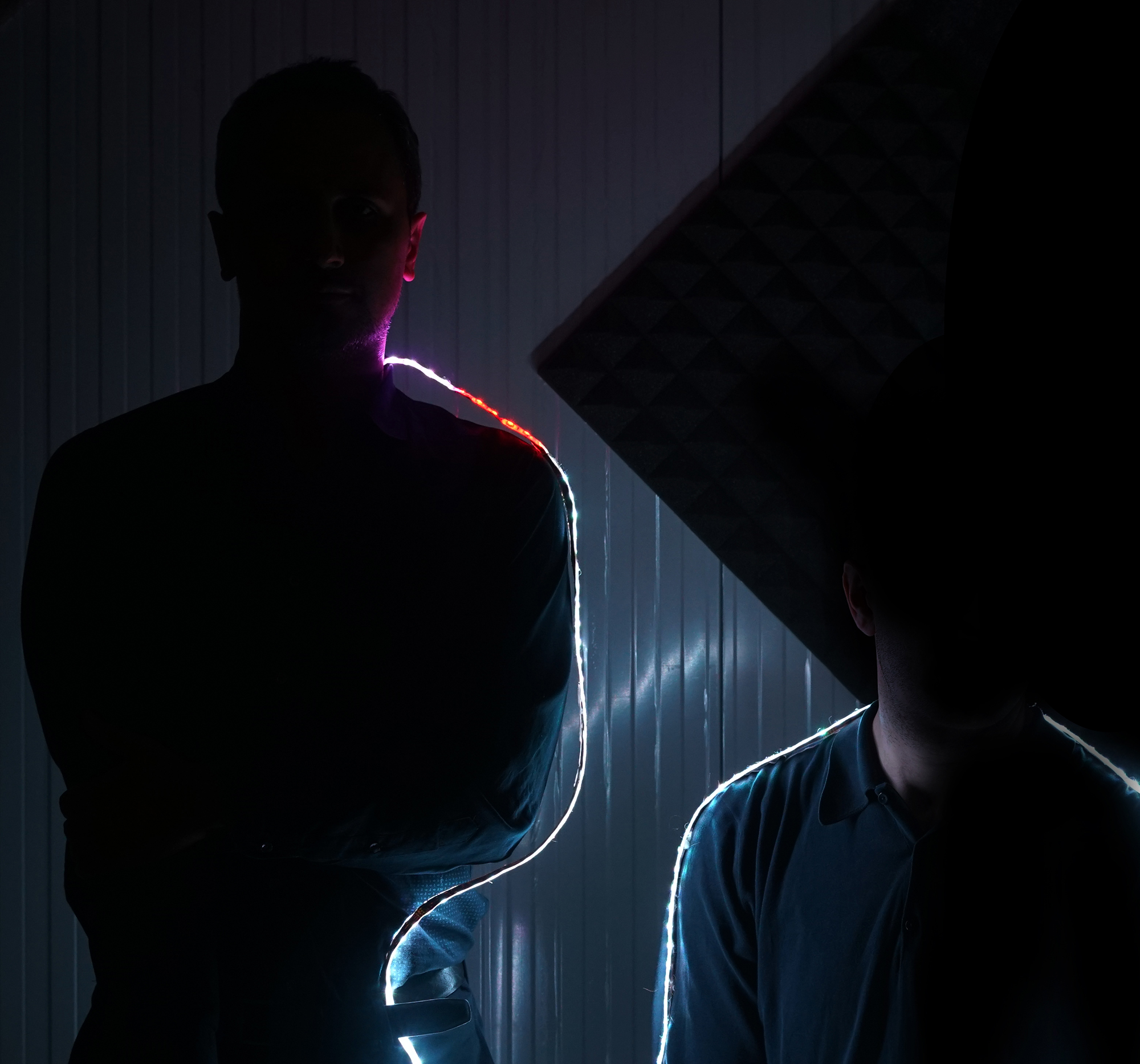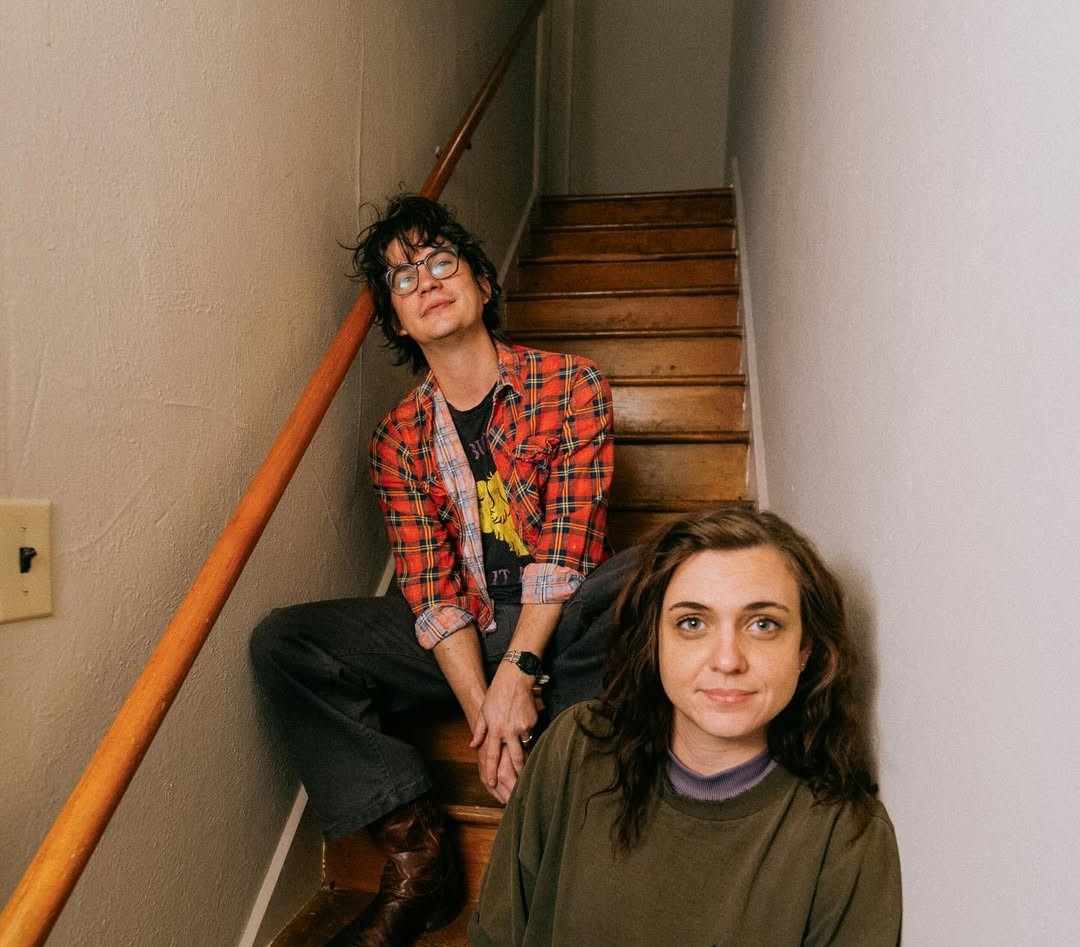Kabuki Dream | Interview | New Album, ‘Abstract’
The fantastic Italian electro-synthwave duo Kabuki Dream recently released a brand new album, ‘Abstract’ inspired by dystopian science fiction via Veidt Records.
The duo was born from the union between Jacopo Gabanini and Francesco Bartoli and is based around the concept of using electronic music in the most visual way possible. The Italian duo has increased the evocative force of their tracks, resulting from inputs or improvisations in the alchemy of the recording studio, and has used mainly modular synthesizers, with the addition of electric piano loops, electric guitar and drum machine.
‘Abstract’ follows the debut album ‘Pro.To.Con.’ of 2019, a concept based on a sci-fi story written by Gabanini himself, and the three EPs Alice in ‘Hardwareland’ of 2020, ‘Club Sessions Vol. 1’ and ‘Möbius World,’ both dating back to 2021. In Abstract the compositional structures are freer than in the past, distancing more and more from the common previous experience in the alt-rock group La Banda dei Sospiri.
“We do music for images”
If someone would ask you, what kind of music do you do under the project of Kabuki Dream, what would you reply?
We do music for images. That is, we aim at making music that can evoke visual worlds and support the narration of stories. Electronic music – and synthesizers in general – perfectly fit this purpose. If we had to put a label on our sound, we would define it as “ambient techno” or “drum ‘n’ bass.”
How did you two get together originally and did you know from the start what kind of project you want to work on?
We played for more than ten years in the same rock band. When that experience was over, we started experimenting with synthesizers in order to find new sounds. We have always been fans of electronic music – this was just a way to deep dive into a passion that had always been there.
From the very beginning, our aim was to use electronic music to produce soundtracks.

You have a brand new album out. ‘Abstract’ is inspired by dystopian science fiction, would you like to share some further words about the concept behind it?
Science fiction has inspired our music and our artwork from the start. ‘Abstract’ is an evolution of our early work, which was based on an actual science fiction story. This time, though, we have focused on sensations and suggestions, a mix that involves feelings of fascination and awkwardness for the future.
How would you compare it to your debut album, ‘Pro.To.Con.?’ Do you see it as a continuation of the story?
‘Pro.To.Con.’ was a self-contained story – and even if it does include the possibilities of follow-ups, ‘Abstract’ does not belong to that world. ‘Abstract’ tells stories as well, but in a more fragmented way, drawing from our imagination but in a disordered fashion – this way, emphasizing the dystopian part of our music. We wanted to create images from scratch, as opposed to translate a story into music – and we thought that abstraction was the art form that could best represent this creative process.
So a story plays a large role in your music?
A very important role indeed – but we do not want it to become a restriction. This is why in ‘Abstract’ the story has a radically different role – an ephemeral presence, if you will – as opposed to the role it played in the past.
Then there are three EPs that I would like to discuss, ‘Alice in Hardwareland,’ ‘Club Sessions Vol. 1’ and ‘Möbius World.’
These EPs are crucial to understanding how we got to ‘Abstract.’ ‘Alice in Hardwareland’ follows into the first album’s footsteps, telling an original story: a cyber-punk Alice sneaks into the conscience of a rebel Artificial Intelligence that wants to destroy the world, in order to convince it to give up on its project. Inside the A.I. she will find a wonderland populated by bizarre creatures that represent the different sides of the robot. With ‘Club Sessions – Vol.1’ we wanted to focus on techno music, whereas ‘Möbius World’ was the starting point to the path that has led us to ‘Abstract’: ethereal sounds and alienated loops linked together on a Dick-esque background.
I really enjoy the references from Philip K. Dick and George Orwell, which sadly are more than true these days…
The fact that the visions of these two artists – that we have always been great admirers of – are slowly becoming more and more real is both scary and inspiring for our music.
What kind of synthesizers did you use on your latest album?
Our gear is made up of stand-alone synthesizers and classic semi-modulars, both analog and digital: drum machines and modular racks, synth guitars, vocal effects, loopers and effect modules that we also use in our concerts together with DJ consoles. The album was recorded with Pro Tools and partially edited via computer. We compose our music with instruments, without using computers – just as we do when we create most of our effects. In the post-processing phase we do the mixing and the equalization of the frequencies, so as to maintain the analogic sound that we got from recording in direct drive.
Even the cover artwork is part of the concept. How was it to collaborate with Matteo Babbi?
We have been working with Matteo Babbi since our very first album and we understand each other perfectly. This shift towards abstract art was natural and it has not affected the sci-fi vibe that you can find in our previous work.
Can we expect more projects like this from you in the near future?
We are positive about this – with ‘Abstract’ our sound has gained more clarity, and this undoubtedly represents a good foundation for new projects and experiments ahead.
Klemen Breznikar
Headline photo: Emilio Rossi
Kabuki Dream Website / Facebook / Instagram / YouTube
Veidt Records Facebook
‘Abstract’ by Kabuki Dream | Album Release | “Dystopian electro-synthwave”




